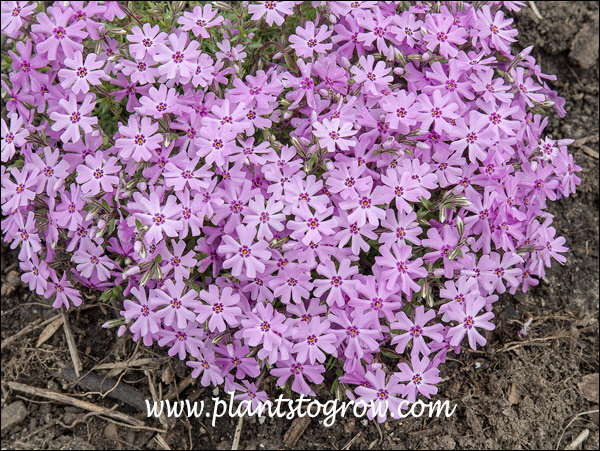| Description | A low growing ground cover perennial with compact moss-like foliage and pink with red center eye. |
|---|---|
| Pronunciation | (floks)(sub-EW-lah-tah) |
| Plant Type | All Plants, Perennials Hardy |
| Hardiness Zone | 2-8 |
| Sunlight | flowers best in full sun, tolerates some shade |
| Moisture | average |
| Soil & Site | average, well drained |
| Flowers | 3-5 borne in a loose panicle, pink with red eye |
| Leaves | narrow linear,green, moss like |
| Dimensions | around 4-6" tall and spreading over 24", plant 12-18" on center. |
| Maintenance | If Creeping Phlox is placed to close to a sidewalk, patio, etc. it will creep into this area. Most people will shear it straight on the edges leaving a rough brown edge. A way to avoid this ugly look is to lift the edges of the plant up and cut the brown underside of the plant leaving a layer of growing foliage on the top to fill in. Than take this foliage and feather it back with a pruning shear or scissors. This works with Creeping Phlox because it tends to grow in layers with the new growth creeping over the older growth. When grass or weed start growing through the foliage, lift the plant and pull the weeds from underneath. Once the Phlox is established the weed problem will be minimal. A light shearing after bloom will encourage compact growth. |
| Propagation | division, cuttings |
| Native Site | Native to America first sent to England in 1745 by John Bartram. |
| Misc Facts | The name comes from the foliage (moss like) and the pink color of the flowers |
| Author's Notes | Planted in my garden spring of 2013. Still growing strong in the spring of 2016. The flowers on my plants are a pink with a ting of blue. |

Cart





